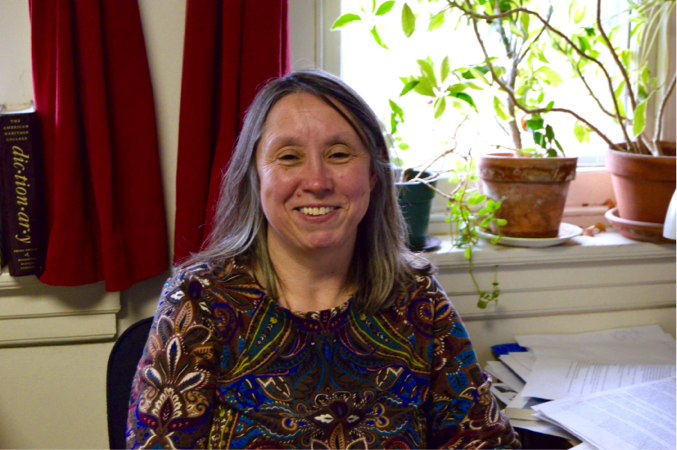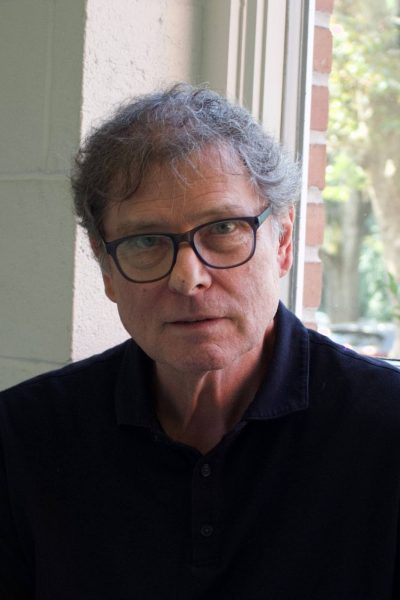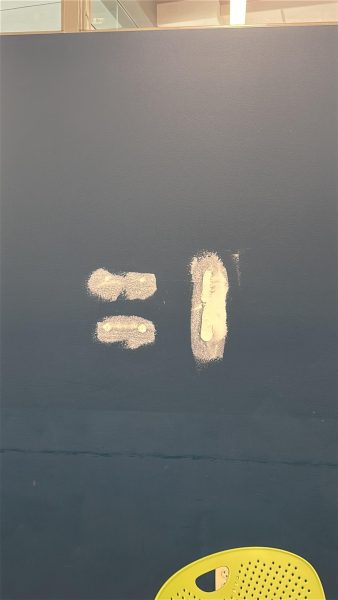Professor Theresa Dougal Bridges Gap Between Nature and Literature
In a classroom in Moravian College’s Zinzendorf Hall, students huddle in a circle for a class called Art of Poetry. In front of them are open books containing the legacies of master poets and authors, their works picked apart and interpreted by the students.
In the front of the room sits Dr. Theresa Dougal, who listens to her students explain their views on the texts, allowing them to express their thoughts and opinions but also encouraging them to go deeper. She urges them to look at how a poem can be interpreted and how it can affect someone, all without pushing her own agenda.
After the discussions, she brings out a new poem that veers off the path for the day. It is “The Lake Isle of Innisfree,” by William Butler Yeats, a poem about nature.
The natural world has long been a popular subject in poetry. This year it coincides with Moravian’s 2016-2017 InFocus theme of sustainability.
Dr. Dougal, Professor of English at Moravian, incorporates ideas of sustainability and nature into her teaching and scholarship. As one of the co-directors of this year’s InFocus committee, she uses poetry to create a bridge between nature and literature. Dougal also imparts her own personal perspective on environmentalism, which she has been developing since graduate school but more recently has begun to use in the study of humanities.
Dougal said that she was always attracted to “nature writing.” Her interest can be seen in her focus on early 19th-century British and American literature, which are well known for their emphasis on nature.
“My own personal environmentalism goes back to my graduate school days, but I have more recently endeavored to use the study of the humanities as an avenue into understanding and perhaps acting upon issues regarding the environment,” she said.
Dougal believes that poems help expose students to the beauty of nature and the importance of protecting it. Since the election of President Donald Trump, an adamant climate change denier, protecting nature is more important than ever.
Global climate change is, in her words, “this ‘inconvenient truth’ that we really need to get a handle and focus on.” She said that accepting this truth is difficult because it involves fundamentally changing the attitudes and behaviors of the populace.
In the wake of the election, Dougal provided her students with a chance to express their emotions and talk about their concerns. When Trump’s views on climate change came up in discussion, she avoided negativity and instead reminded students that staying involved and informed on climate change would guarantee that the issue stays relevant.
Sustainability plays an important role in Professor Dougal’s life, as well as in her family’s lifestyle, choices and beliefs. However, she has said that bridging the gap between sustainability and the teaching of literature has been a little harder, since the “science” of sustainability is not obviously connected to the humanistic study of English.
“Reading literature has always been a wonderful way for us to open our minds and hearts to new ideas and experiences, and given how disinclined people are to listen to and accept the facts about climate change, maybe literature – and the arts in general—will be the means by which a shift in consciousness can happen,” she said.
As the students fervently talk about the wonders of nature and the beauty that needs to be protected, Dougal gives a small, knowing smile. She watches her students grow and change due to the persuasiveness of these poets.
The students in her class tend to like the the wide variety of poems she gives them. She understands that not every poem will appeal to everyone.
Whether it’s the poetry of William Wordsworth, who understood and articulated the deep-seated need that humans have for nature’s untrammeled beauty, the beautifully articulated nature poems of Mary Oliver, or the spoken word poems of Prince Ea, Professor Dougal believes that there is a poem for everyone.
Thanks to this exposure, Dougal has brought attention to the impact that people have on the earth and the importance of sustainability.
“Prior to taking this class I did not know a lot about sustainability, and with Dr. Dougal introducing us to these poems and spoken word poems about the environment, I definitely have a better understanding of sustainability,” said Brianna Richards, one of the students in Dougal’s Art of Poetry class.
As class draws to a close each night, Dougal finishes off with a simple poem about nature. She sits at her desk, makes herself comfortable, and pulls out her book on poetry. This simple poem, as she describes it, evokes much more than a simple response, she says, but rather something much greater. And then Dr. Dougal begins to read Tess Gallagher’s “Choices.”












Joyce Hinnefeld • Mar 4, 2017 at 11:06 am
What a beautiful piece! Thank you for this thoughtful article, Jonathan–and thanks to Dr. Dougal for her important and valuable work.
don st. john • Mar 3, 2017 at 6:17 pm
Wonderful, Theresa. Too few people get the connection between our science of the earth, of climate change, etc.
and the role of poetry and the human heart in both understanding and acting so as to protect our Mother, the Earth.